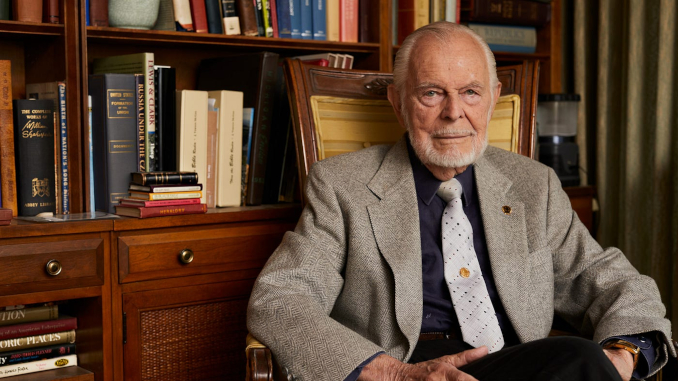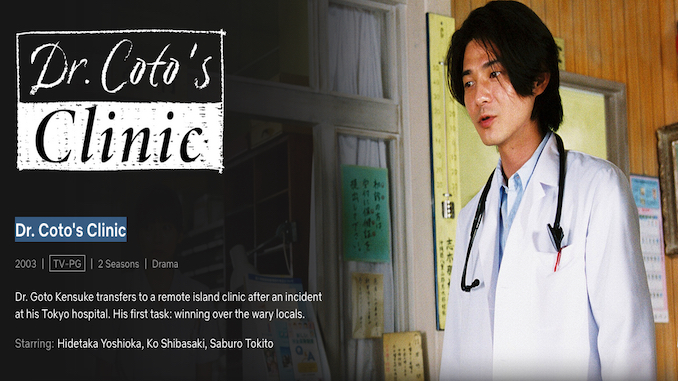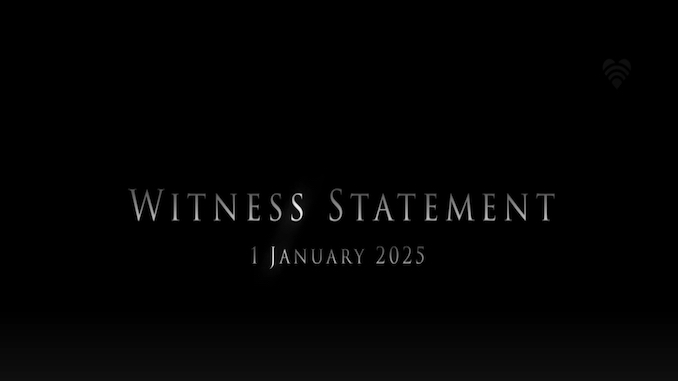
Movie of the Week
G. Edward Griffin Interviews Norman Dodd
on the Reece Committee Investigation
April 12, 2025

“[T]he major tax-exempt foundations of this land, since at least 1945, have been operating to promote a hidden agenda, and that agenda has nothing to do with the surface appearance of charity, good works, or philanthropy.”
~ G. Edward Griffin
Movie of the Week
G. Edward Griffin Interviews Norman Dodd
on the Reece Committee Investigation
G. Edward Griffin is perhaps best known as the author of the famous 1994 exposé of the Federal Reserve, The Creature from Jekyll Island. However, as a filmmaker and producer, his oeuvre also includes numerous films, videos, and interviews.
In 1982, Griffin conducted a fascinating interview with American banker and financial advisor Norman Dodd to discuss Dodd’s findings when he served as Director of Research in 1953 for the U.S. House Select Committee to Investigate Tax-Exempt Foundations and Comparable Organizations, also referred to as the Reece Committee. As Griffin noted in his preamble, Dodd was at that time already advanced in age, and Griffin wanted to preserve his recollections for history and posterity. Dodd passed away five years later.
Dodd told Griffin that as a young man, he chose a career in banking because he knew “absolutely nothing” about how the world of business operated and determined that “the only way to find out what the world consisted of [was] to become part of it.” He secured a position at an “important” New York bank (“a Morgan bank”), and, following the 1929 crash, was given the extraordinary leeway to spend two-plus years trying to understand what had happened. After the “most prominent bankers in the country” rejected his conclusion that the U.S. needed to return to sound banking—and instead tried to bribe him into staying quiet with the offer of a speedy promotion and generous salary—Dodd resigned, only to discover that the banking industry had immediately and permanently blackballed him.
The Reece Committee, formed during the height of the McCarthy era, was charged by the House with assessing whether the activities of tax-exempt foundations were “un-American.” Not being provided with an operational definition of “un-American,” the Committee chose to conceptualize it as “a determination to effect changes in the country by unconstitutional means.”
Dodd’s research found that large foundations—including the Ford Foundation, Carnegie Endowment, Guggenheim Foundation, and Rockefeller Foundation—were actively conspiring to hijack and control American education, with the aim of instilling collectivist ideals and working toward a “monopoly…administrable unit” (what we would call today a “one-world government”).
Though this interview is now over 40 years old, it is peppered with themes that are still relevant today, including the weaponization of “anti-Semitism” charges to sabotage a Committee member’s reputation, and the mothballing and disappearance of critical recordings that unequivocally highlighted the foundations’ scheming. When Dodd sent a skeptical lawyer to investigate the Carnegie Endowment, her initial attitude—“What could possibly be wrong with foundations? They do so much good”—is one still widely, and undeservedly, shared by the public today.
Links
Norman Dodd (Wikipedia)
United States House Select Committee to Investigate Tax-Exempt Foundations and Comparable Organizations (Wikipedia)
Related at Solari
Ed Griffith Interviews Norm Dodd on Tax-Exempt Foundations (links to interview transcript)
Log in or subscribe to the Solari Report to enjoy full access to exclusive articles and features.
Already a subscriber?



